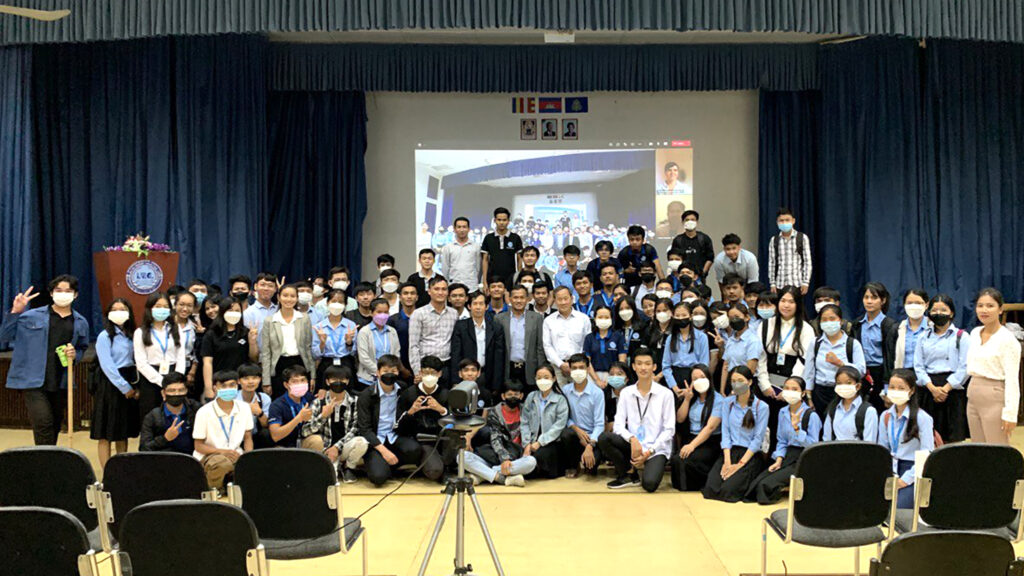
On 18 August 2022, the WP#2 “Sustainable Building” 2nd Science Workshop took place within the one day seminar on “Sustainable Development, Sustainable City, Smart City, Cambodia “ at the Institute of Technology of Cambodia (ITC), Phnom Penh. The main aim of this workshop was to facilitate the exchange with local sustainability research projects and related experts and to present WP2’s research and the Build4People project to local Cambodian researchers and students of ITC. Multiple Cambodian and international researchers presented their work, amongst them the WP2’s Cambodian research partners Dr. Virak Han, Ms. TAING Kimnenh, Mr. LONG Makara and Ms. KETH Kannary.
Prof. Dr. Dirk Schwede and Christina Karagianni, members of the WP#2 team participated online and presented their research in Cambodia and in Vietnam. The presentations were followed by a Q&A session moderated by ITC. In her presentation, Christina Karagianni went through the energy use and demand in Cambodia now and in the future and continued by analyzing different strategies towards increasing cooling thermal comfort and reducing the energy used to provide that cooling. It was pointed out that there are several ways to energy efficiency and apart from energy labelling and minimum energy performance standards (MEPS) other strategies like equipment inspection, energy audits and data collection and the subsequent creation of database system are all strategies that can help users be aware and control their energy use and at the same time can be utilised to provide a highly efficient, healthy and comfortable living environment. A first step towards such strategies can be supported by the Build4People research and WP2s building audit campaign, which is already taking place in Phnom Penh.
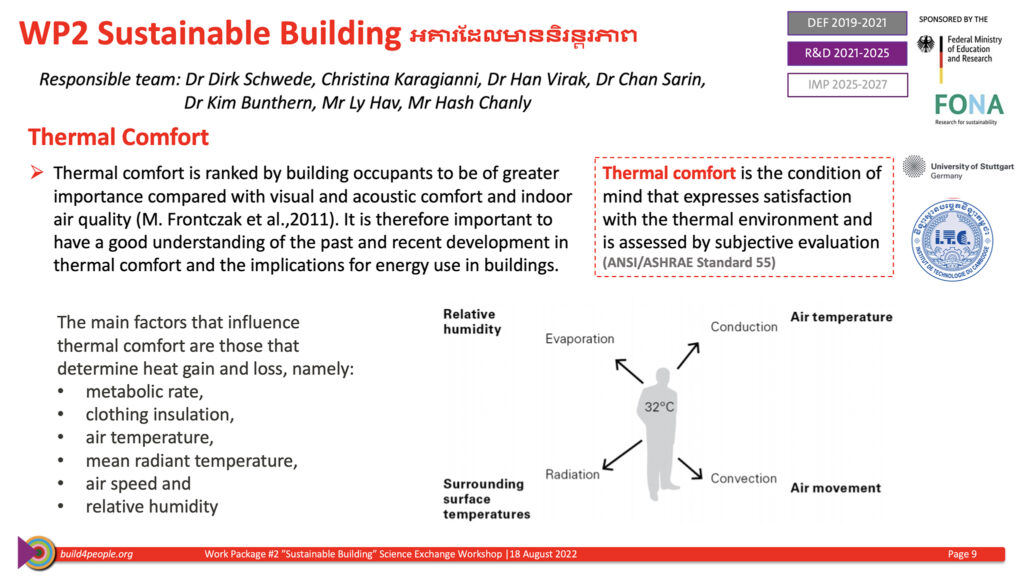
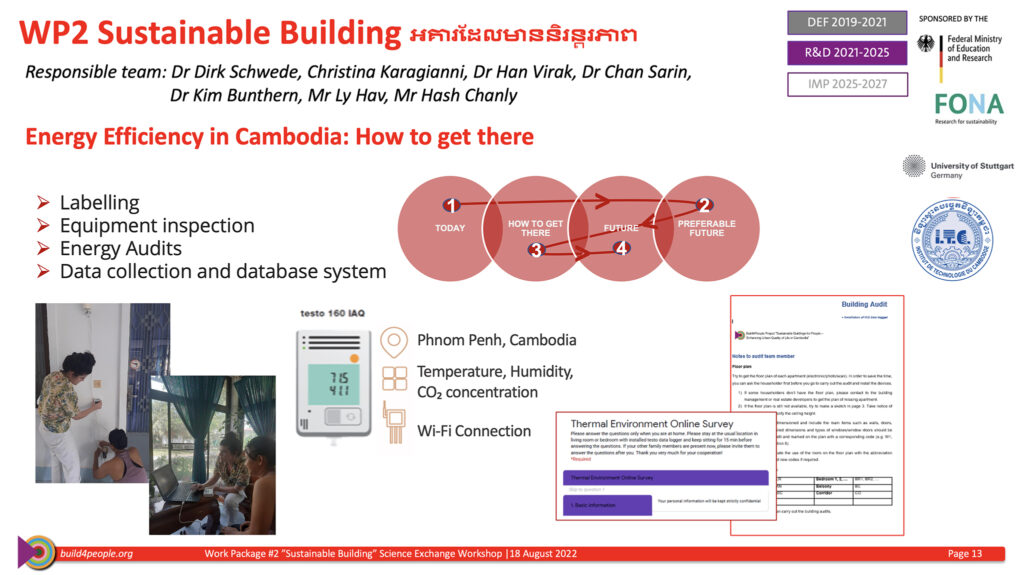
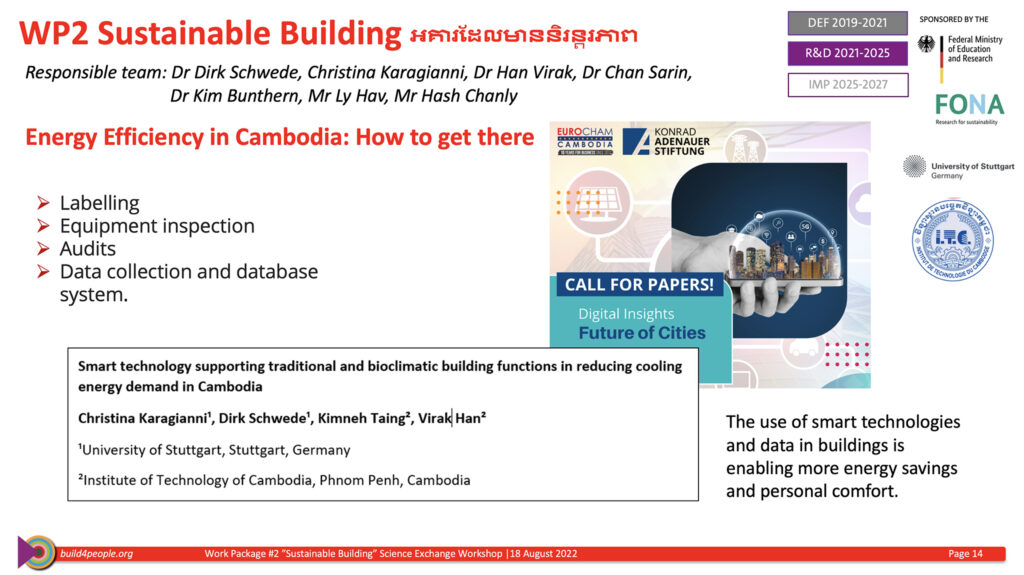
Presentation: Relationship of energy use and thermal comfort, results from a study in Vietnam by Prof. Dr. Dirk Schwede, Technische Hochschule Lübeck
Dirk Schwede’s presentation of CAMaRSEC (Climate-adapted Material Research for the Socio-economic Context in Vietnam) introduced some results from a similar to WP2 building campaign and some examples of analysing such data were presented. The German-Vietnamese project CAMaRSEC is supporting the implementation and further development of energy-efficient, resource-efficient and sustainable construction practices. By now in this research, data from 49 apartments in residential high rises in Hanoi have been collected and analysed in a similar manner as we intend to do in Build4People.
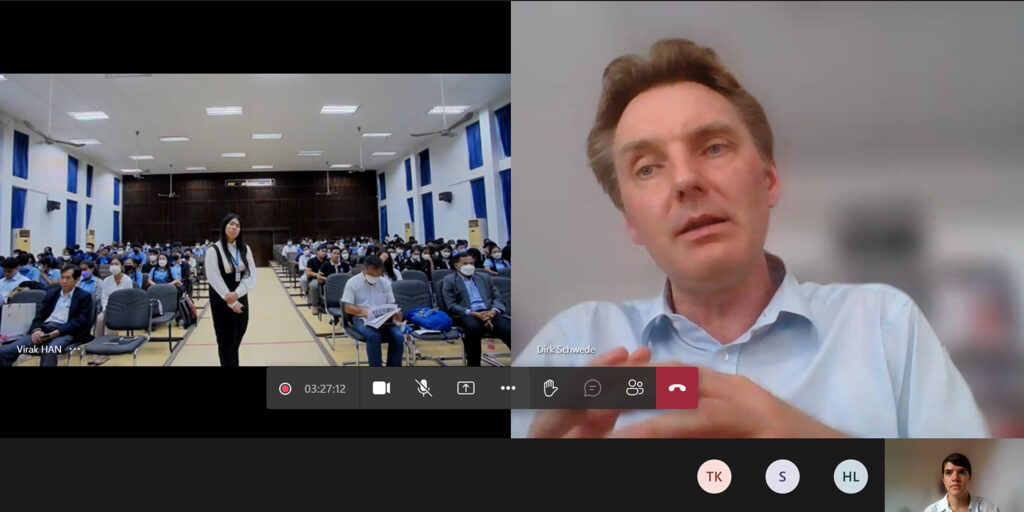
The Build4People WP#2 team would like to kindly thank ITC for organising and including our research to such a meaningful event and to all of the presenters for sharing their research and insights from Cambodia.